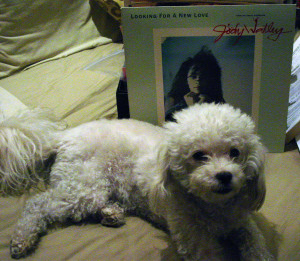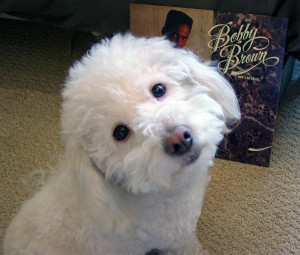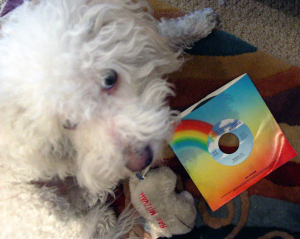
Jody Watley is more of a trailblazer than you may realize.
She debuted as a Soul Train dancer at 14, where she amassed many fans due to her fashion sense and her dance style, called waacking, described on her web-site as a “beat-driven cousin of voguing.” She told DiscoMusic.com that she remembers those days fondly. “The Soul Train era was a lot of fun. It’s where I received my diva training in working the camera, giving attitude and ‘working it!’ All of the gay boys on the show taught me well!”
In 1977 she became a member of the music trio Shalamar, with whom she remained until 1983. The group landed hits on the pop, r&b and dance charts with “The Second Time Around,” “Dead Giveaway,” “Make That Move,” “A Night to Remember,” “Full of Fire” and “Right in the Socket.”
In 1984 she participated in the recording of “Do They Know It’s Christmas?” She and Robert “Kool” Bell of Kool & the Gang were the only American performers in Band Aid.
Her self-titled solo debut album was released in 1986. It produced five charted singles – “Don’t You Want Me,” “”Some Kind of Lover,” “Still a Thrill,” “Most of All,” and the classic “Looking For A New Love,” which gave us the catch-phrase “Hasta la vista, baby,” later used by Tone-Loc in “Wild Thing” and Arnold Schwarzenegger in Terminator 2: Judgment Day. She co-wrote all but three songs on the album, including its three top ten pop singles.
That album won Jody the Grammy Award for Best New Artist, nearly a decade after her first hit as part of Shalamar.
The music videos for “Most of All” and “Real Love,” the first single from her second solo album, were directed by David Fincher, director of the films Gone Girl, The Social Network, The Curious Case of Benjamin Button, Fight Club, The Girl with the Dragon Tattoo, Zodiac and Se7en. The “Real Love” video received six MTV Video Award nominations.
The follow-up to the “Real Love” single, which hit #2, was another top ten pop hit. “Friends” was groundbreaking in that it was the first crossover hit to which a rapper, in this case Rakim, added an original verse. This formula became and remains very popular, to the extent that in 2002 the Grammy Awards added a Rap/Sung category.
That song’s music video was radical as well. In it, Jody and Rakim perform for a multicultural crowd that includes people of different races, sexual orientations and gender expressions, but not in a way that appears pandering to her base.
In 1994, Jody had a dance hit with an original song entitled “When a Man Loves a Woman.” In the UK re-edits of the song were released. “When a Man Loves a Man” was a big hit in gay clubs there. (There was also a “When a Woman Loves a Woman” mix.)
Said Jody to DiscoMusic.com, “I appreciate my gay fan base so much… I’m told they admire my individuality, style, and inner strength to persevere. I’ve also been told that my songs have helped people come out to their families or go through break ups. I’m always humbled.”
In 2004, four years before Prop 8 became a Prop, city officials in San Francisco issued about 4000 marriage licenses to same-sex couples. Jody Watley was there to serenade the newlyweds. (The California Supreme Court ordered the city to cease marrying same-sex partners in March 2004.)
Today Tunes du Jour celebrates the 56th birthday of Jody Watley by peppering our weekly dance playlist with some of her finest moments.
Click here to like Tunes du Jour on Facebook.
Follow me on Twitter: @TunesDuJour






